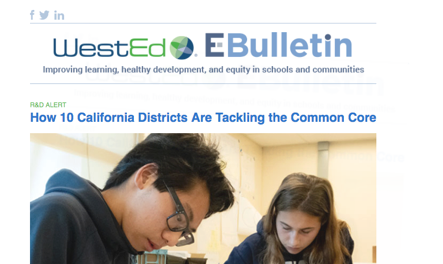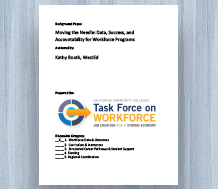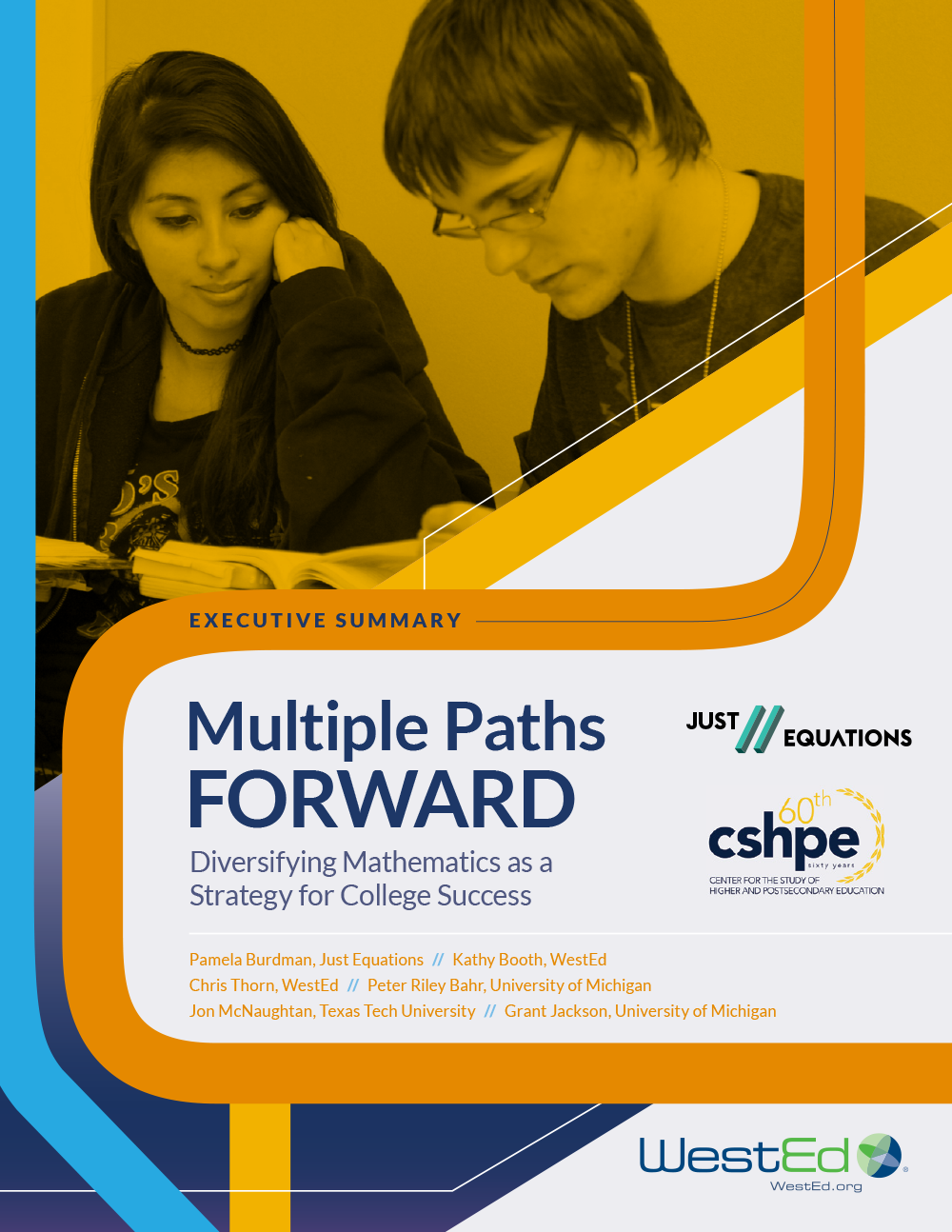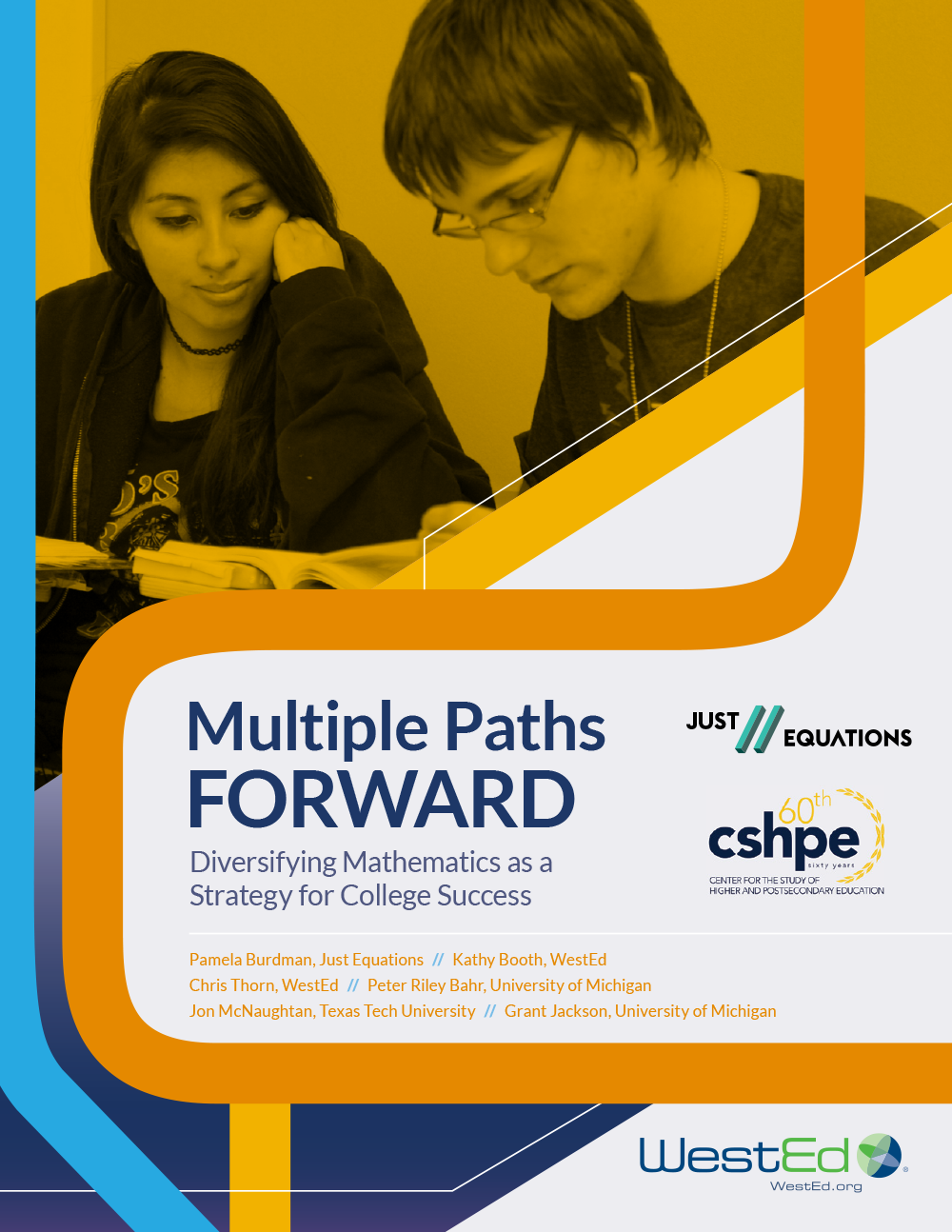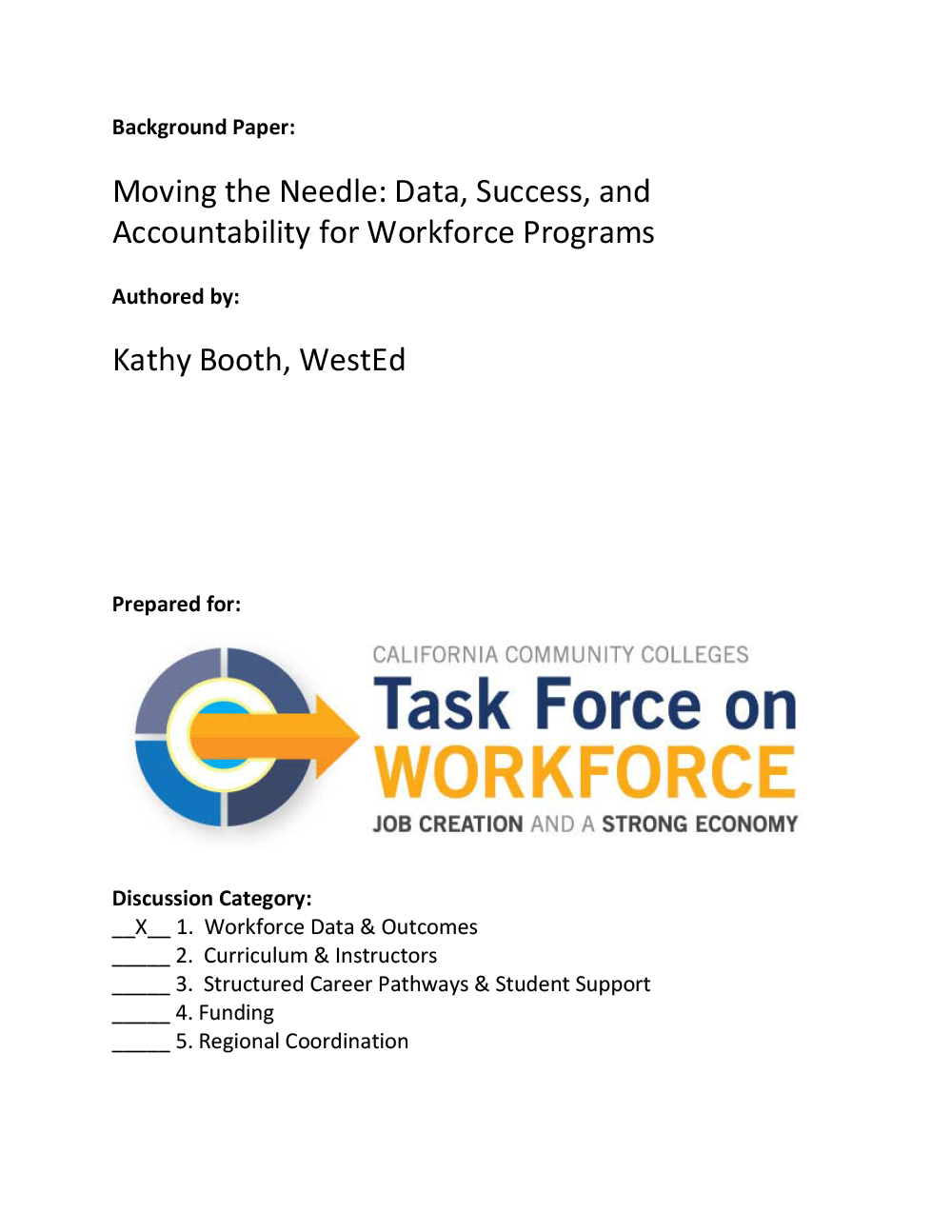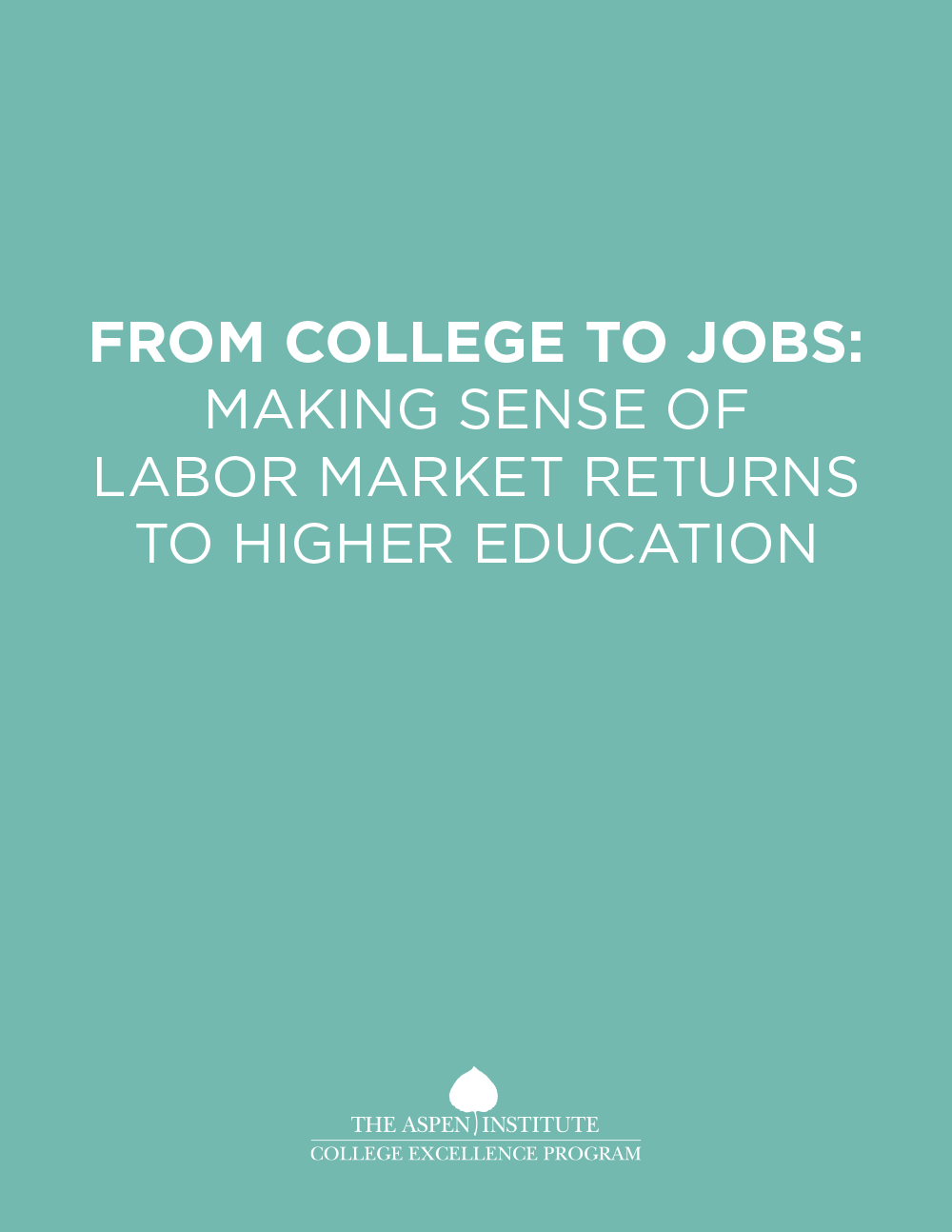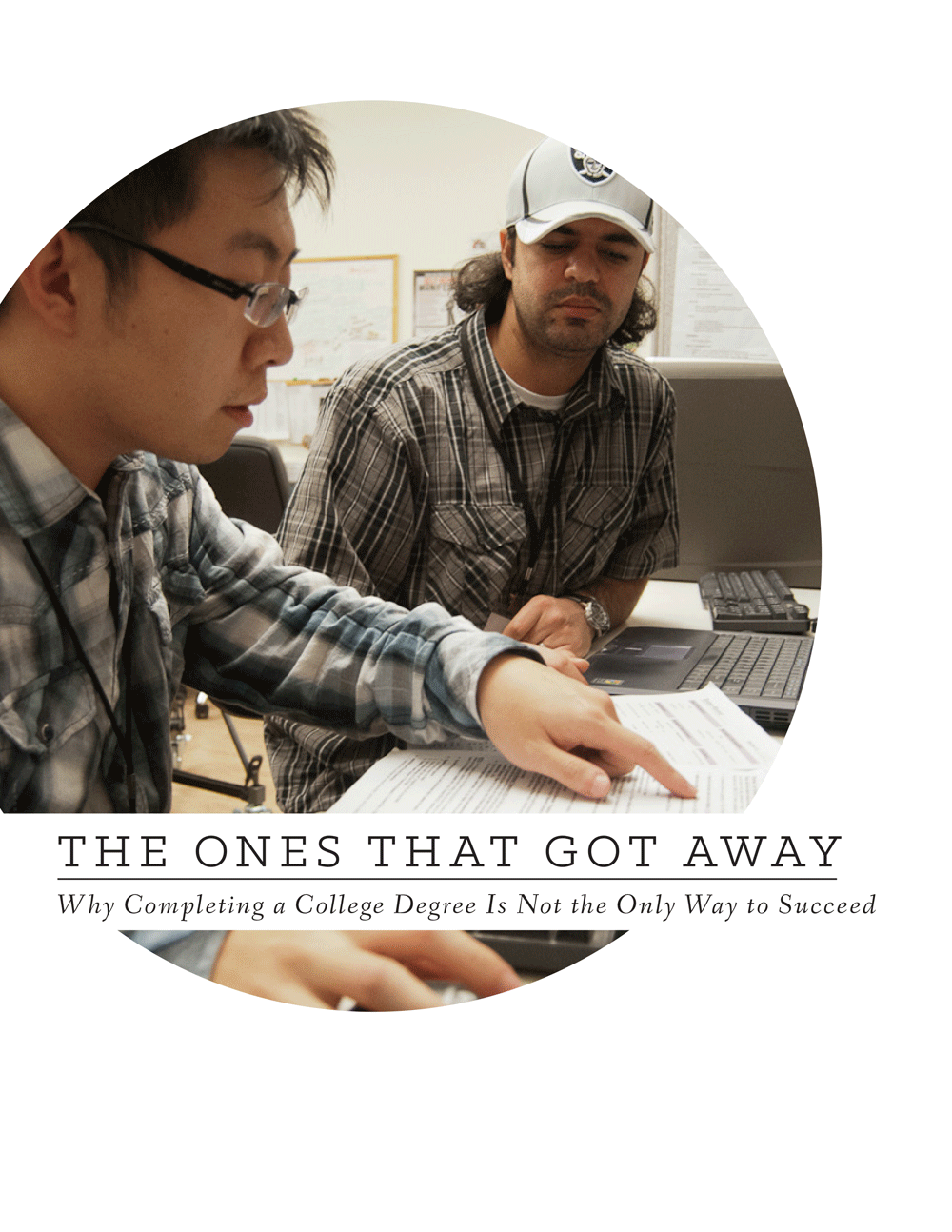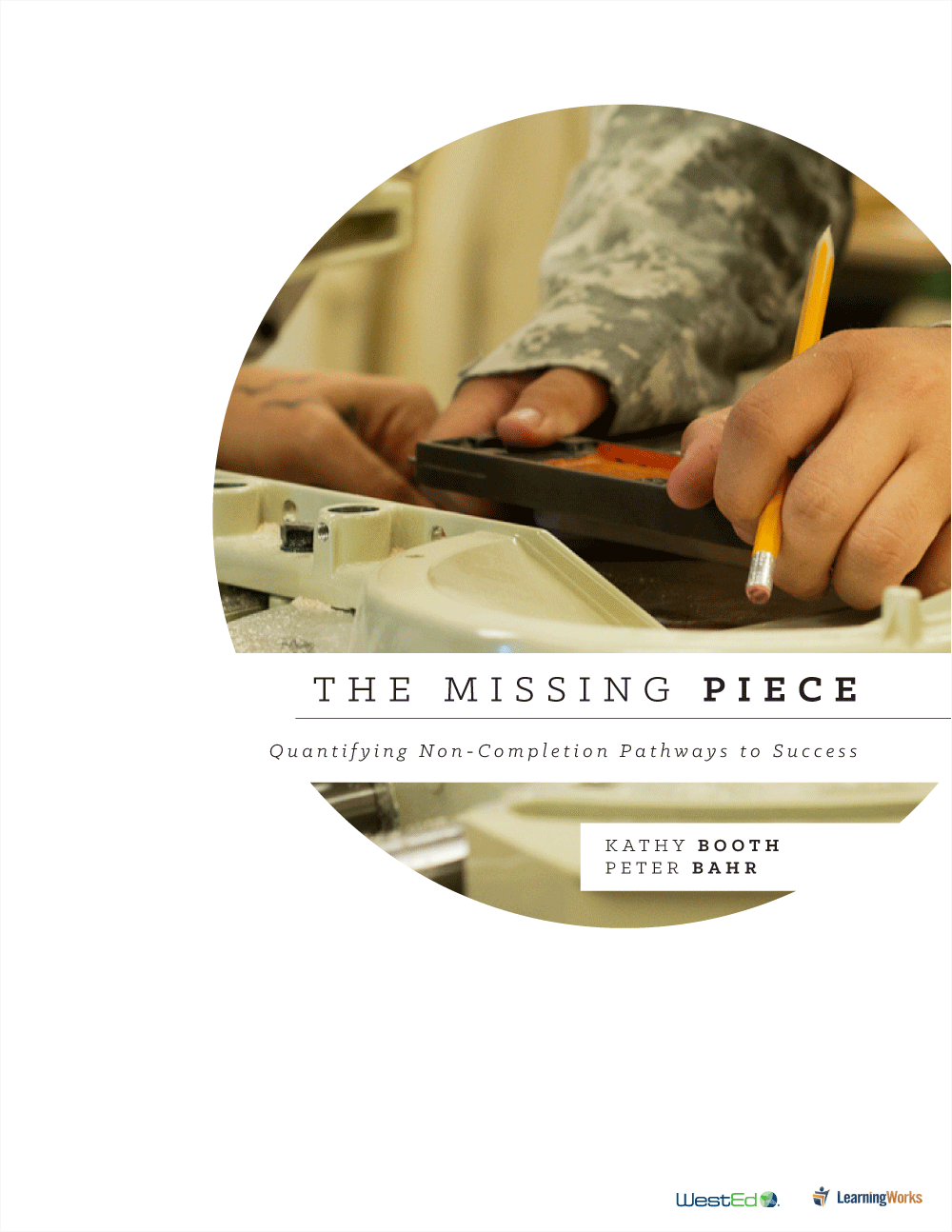
The national push for completion of degrees, certificates, and transfer to four-year institutions has helped to focus community colleges on measurable goals. However, this emphasis on completion does not fully capture community college outcomes, particularly in job training.
While some workforce-related results are measured by community college credentials, a significant portion of workforce development occurs outside of the completion framework. For example, completion metrics do not include placement in apprenticeship programs, attaining an industry certification or professional license, or participation in single courses that allow students to upgrade skills.
Skills builders are students who typically enroll in community college for a short period of time, take and successfully complete a handful of career-oriented classes, and frequently translate their coursework into earning gains.
For over a decade, WestEd and the University of Michigan have worked together to document skills builder outcomes in numerous states, develop research methodologies that allow others to identify skills builders in their own institutions, and provide support to colleges and state systems to better serve skills builder students and reduce equity gaps in who benefits from short-term training pathways.
Research conducted in 2022
The University of Michigan analyzed data from Colorado and Ohio and partnered with WestEd to support action planning.
- View slides from a presentation on research results
- Download a methodology for identifying skills builders and their economic outcomes
- Watch a webinar on how findings were integrated into Guided Pathways implementation in Ohio
- Apply to receive technical assistance to strengthen skills builder outcomes
Research conducted in 2020
The University of Michigan examined data across California, Colorado, Michigan, and Ohio to analyze skills builder prevalence, characteristics, course-taking, and educational and labor market outcomes.
- Read a scholarly article on the findings
Research conducted in 2013–2015
WestEd and the University of Michigan conducted qualitative research, funded by LearningWorks, to better understand skills builder pathways at 10 colleges, as well as creating discussion guides and collaborating with practitioner-based organizations to start conversations about the implications of this research.
- What’s Completion Got to Do with It?applies a cluster analysis to the current conversation on improving completion outcomes and includes a series of questions that could be used to discuss the research. Inquiry Guide
- The Ones That Got Away: Why Completing a College Degree Is Not the Only Way to Succeed draws on numerous studies to explore alternative approaches to measuring how well community colleges serve career and technical education students. Executive Summary | Full Report
- The Missing Piece: Quantifying Non-Completion Pathways to Success describes the types of courses skills-builders take, their earnings gains, and implications for measuring student success, as well as providing questions that could be used to discuss the research. Executive Summary| Full Report
- “Building More Comprehensive Measures of Workforce Training Success,” a four-minute video explaining why including factors such as wage gain, employment retention, and third-party certification would better capture the full range of career and technical education outcomes
- “How Workforce Pathways Shape College Outcomes and Earnings Gains,” an eight-minute video examining the multiple types of workforce training offered by community colleges and their associated earnings gains, as a means of documenting the value of both short-term and long-term education pathways
